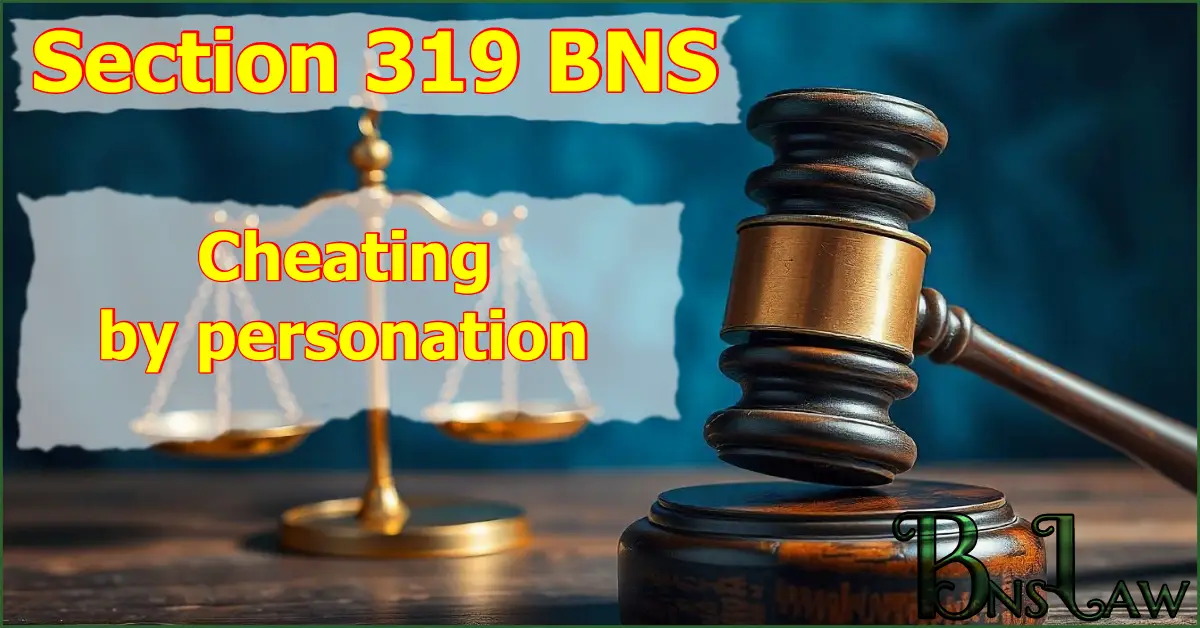Section 319 BNS | BNS 319
319(1) BNS
A person is said to cheat by personation if he cheats by pretending to be some other person, or by knowingly substituting one person for or another, or representing that he or any other person is a person other than he or such other person really is.
Explanation— The offence is committed whether the individual personated is a real or imaginary person.
Illustrations
(a) A cheats by pretending to be a certain rich banker of the same name. A cheats by personation.
(b) A cheats by pretending to be B, a person who is deceased. A cheats by personation.
319(2) BNS
Whoever cheats by personation shall be punished with imprisonment of either description for a term which may extend to five years, or with fine, or with both.
READ OTHER SECTIONS OF CHAPTER XVII — OF OFFENCES AGAINST PROPERTY
FAQs of BNS Section 319
-
319 BNS punishment and fine
Punishment and fine under Section 319(2) of the BNS: Imprisonment for 5 years, or with fine, or with both.
-
319 BNS cognizable or not
The offence under Section 319(2) of the BNS is cognizable.
-
319 BNS bailable or not
The offence under Section 319(2) of the BNS is bailable.
-
319 BNS trial court
Offence specified in Section 319(2) of the BNS is triable by any Magistrate.
Important Points
- Cognizable Offences: These are offences where a police officer can arrest a person without a warrant.
- Non-Cognizable Offences: These are offences where a police officer cannot arrest a person without a warrant.
- Bailable Offences: These are offences where the accused can get bail from the police station itself. All bailable offences are listed in the First Schedule of the Bharatiya Nagarik Suraksha Sanhita (BNSS).
- Non-Bailable Offences: Offences in which bail is not granted directly from the police station but after hearing the case in the court, the judge decides when bail will be granted. All non-bailable offences are listed in the first schedule of the Bharatiya Nagarik Suraksha Sanhita (BNSS).
- In the above FAQ, “trial court” means the court that has jurisdiction to try the offence.
- In the above FAQ, the expression “Magistrate of the first class” and “Any Magistrate” does not include Executive Magistrates.
Read other Sections of the BNS
Reference Link: New Criminal Laws (BNS), Ministry of Home Affairs







